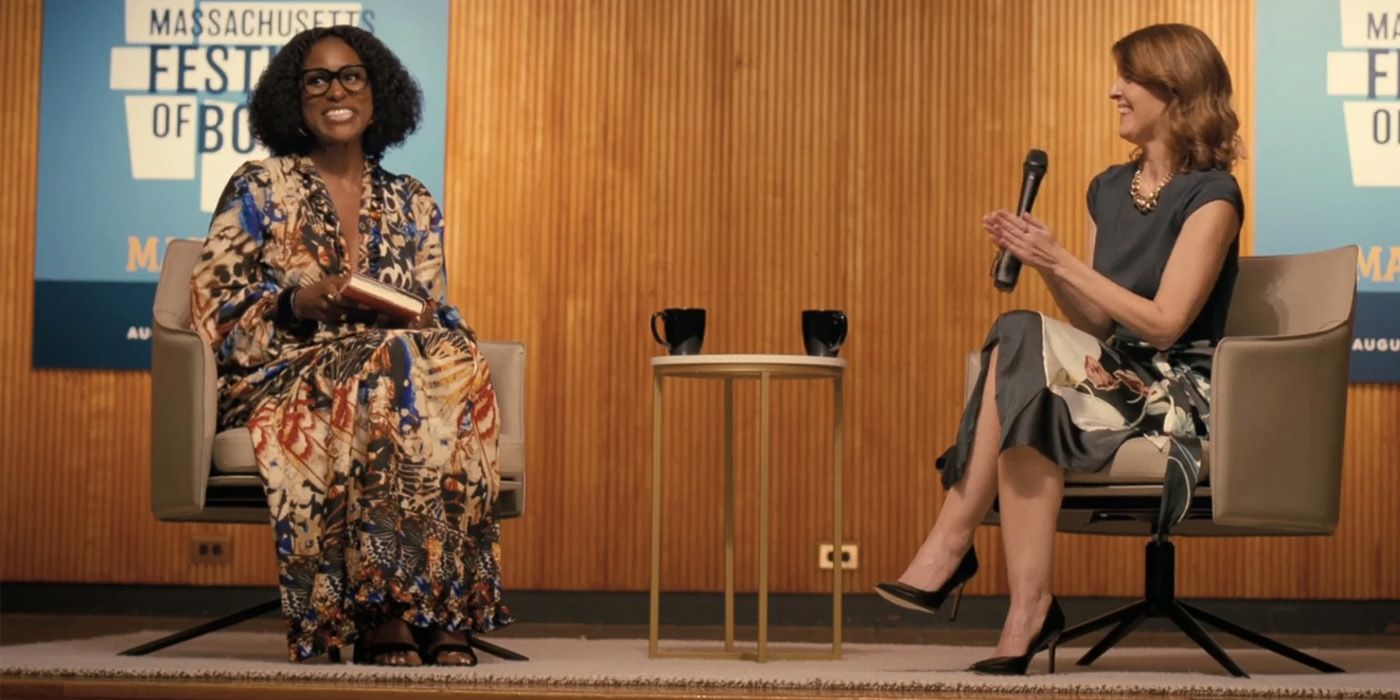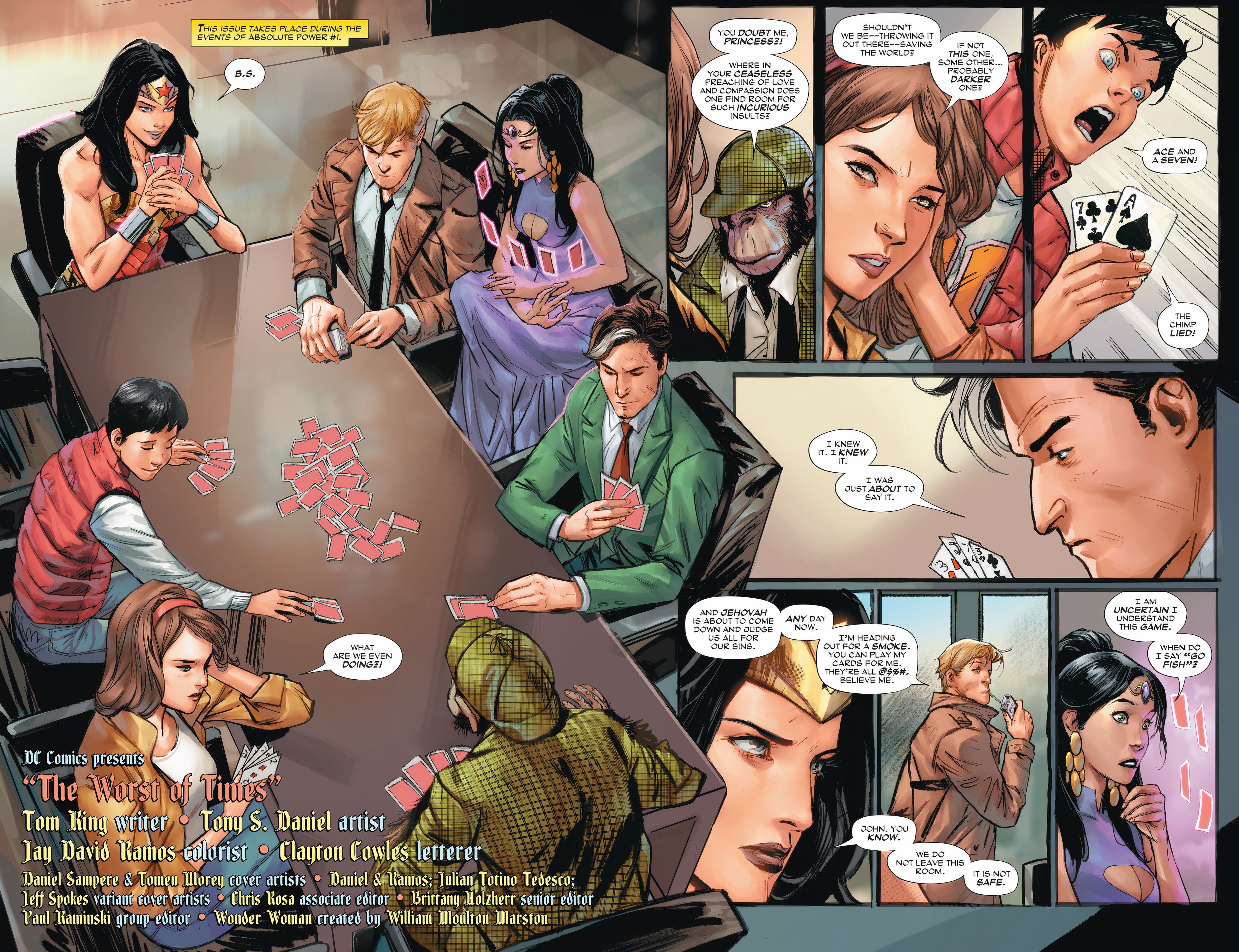Spoiler Warning: This article contains spoilers for American Fiction.
American Fiction is a 2023 dark comedy that stars Jeffrey Wright as a university professor and novelist named Thelonious “Monk” Ellison, and although the film is lauded for its sharp wit and exceptional performances by its cast, American Fiction deviates in quite a few ways from the 2001 Percival Everett novel, Erasure. Although a brilliantly self-reflexive comedy, American Fiction also excels in its dramatic storytelling centering around the personal life of Monk. Even with other movies like American Fiction, the 2023 Cord Jefferson comedy remains unique in its approach to handling its themes of race, identity politics, and family.
In addition to being one of Jeffrey Wright’s best movies, American Fiction also qualifies itself as one of the best movie adaptations of a book as well. Whereas the Everett novel leans more into the dramatic elements of its story, American Fiction thrives on its ability to balance both the absurd with the grounded in a way that challenges its audience to consider why they’re laughing at Monk’s predicament. Even with the changes to both Erasure‘s tone and atmosphere, American Fiction remains a faithful adaptation of the novel while also being a very welcome addition to the dramedy.

Related
Where To Watch American Fiction: Showtimes & Streaming Status
American Fiction has been nominated for five Oscars, and with many movie fans now wanting to watch the film, here’s where you can find it.
9 American Fiction Is Set In Boston Instead Of D.C.
The Boston setting better reflects Monk’s feelings about his predicament than Washington D.C.

In Erasure, the story is set in Washington D.C. – a city notable for its large Black American population, and in American Fiction, the story takes place in the greater Boston, Massachusetts area, known for its larger non-Hispanic White population. Although the film doesn’t highlight its geographical deviation from the source material, it subtly highlights the issues that Monk has with his career. Despite his novel, My Pafology, being a scathing satire against the literary industry, White people adore it, and considering that few Black people are around to offer their insight, My Pafology‘s success only frustrates Monk further.
8 Coraline’s Name Is Different In The Novel
Coraline is named Marilyn Tilman in the source material.

Another less obvious change from Erasure is the name of Monk’s love interest, Coraline, who, played by Erika Alexander, is actually Marilyn Tilman in the book. Furthermore, no specific reason is even so much as hinted at regarding the switch in names, but given the meaning behind the name Coraline, it becomes a subtle stroke of genius. The name Coraline is a French diminutive of the name Coral – itself a precious material used to make jewelry. While Monk is rough around the edges, Coraline is more easy-going and optimistic, thus being a diamond in the rough in a sense.
7 Monk’s Father’s Affair Is Explored In Greater Detail In The Novel
The affair weighs heavier on Monk’s mind in the novel.

American Fiction‘s family drama keeps the movie grounded while also highlighting many of the reasons why Monk is the way he is. Although viewers never see Monk’s father, his siblings Lisa and Cliff confirm that their father did indeed have an affair with a White woman, much to Monk’s dismay. In the novel, Monk makes it a personal mission to track the woman down to gain a greater understanding of why his father would do such a thing. American Fiction, however, provides further context through a series of letters and verbal accounts of the affair.
6 Sintara Golden Is A Judge On The Literary Award Panel
This highlights Monk’s biggest issue with the literary industry.

Played by Issa Rae, fellow novelist, Sintara Golden is an award-winning author responsible for the ridiculously over-the-top novel, We’s Lives in Da Ghetto, a novelization that highlights Black pain and many other damaging stereotypes about the African-American community. Although the book is rancid, Sintara herself is poised and self-aware enough to understand how to advance her career, thus earning her a position on the Literary Award Panel. While this further frustrates Monk, it actually never happens in the novel as Sintara’s character, Juanita Mae Jenkins, isn’t invited to become a part of the panel.
5 Lisa Dies Under A Different Set Of Circumstances
Lisa’s death is much more graphic in the novel.

Despite not seeing Monk in years due to the nature of their personal and professional lives, Lisa has a close relationship with Monk. Whereas Monk moves to Los Angeles to work as a university professor and pursue his dream of becoming a novelist, Lisa stays behind to care for their ailing mother. Although Tracee Ellis Ross’s screen time as List is brief, her sudden death via heart attack leaves a lasting impression on both Monk and the audience. However, in Erasure, Lisa is killed in a random shooting, thus giving the book a much darker tone than American Fiction.

Related
American Fiction Review: Jefferson’s Timely Directorial Debut Is Confident & Provocative
Don’t let cameos fool you, American Fiction is packed with important commentary, clever jokes, and a story that’ll have you coming back for more.
4 Stagg R. Leigh Is Not A Wanted Fugitive In The Novel
Stagg’s fugitive status heightens the absurdity of his situation.
In American Ficiton, Monk’s agent, Arthur, convinces him to disregard his integrity and lean into the absurd and even offensive stereotypes that the literary industry essentially forces Black writers to promote in order to advance his career. Although resistant for the first third of the film, Monk eventually relents and develops the alias Stagg R. Leigh – itself a play on the folk legend Stagger Lee, a Black man who developed a reputation in the antebellum South as the epitome of toughness and Black masculinity, in order to write his scathing satire, My Pafology, without anyone tracing it back to him.
Despite Monk’s intentions, My Pafology becomes a success with big money deals and even movie adaptations of the satire further pushing Monk away from the literary industry. However, as ridiculous as the events are, Monk is forced to develop a fake origin story in which Leigh is actually a wanted fugitive who’s using his experience as a criminal to infuse his work with a heightened sense of realism. As hilarious as the events are, Erasure opts for a more grounded approach by merely having Leigh spend time in prison in order to better capture the essence of the criminal mindset.
3 Stagg R. Leigh’s “My Pafology” Is Explored In Greater Detail In The Book
The movie contains a brief scene that provides some context for the book’s themes.
American Fiction features a creative scene in which characters from his satire, My Pafology, act out a scene as Monk is working on it. Featuring the talents of Keith David and Okieriete Onaodowan as Willy the Wonker and Van Go Jenkins respectively, audiences are treated to a stage-like performance of a scenario rife with absentee fathers, gang violence, and every other negative Black stereotype Monk can think of. Although the scene is great, it’s brief, likely for pacing concerns, but in Erasure, Monk spends a considerable amount of time on it; often revisiting it throughout the book’s events.
2 Coraline Reads Stagg’s Novel Instead Of Sintara’s
Coraline’s appreciation for Monk’s book creates a rift in their relationship.

Although the relationship between Monk and Coraline is one of the more authentic portrayals of Black romance in movies, it isn’t without its issues. In fact, Monk’s ups and downs lend themselves to the realistic nature of their romance, thus making it particularly unfortunate when they have their first big argument near the film’s climax. After enduring the emotional whiplash from the success of My Pafology, Monk takes his frustration out on Coraline when she reveals that she read the book and enjoyed it. However, in Erasure, the couple experiences a rift because she reads We’s Lives in Da Ghetto.
1 American Fiction’s Ending Slightly Recontextualizes The Novel’s Ending
American Fiction features a series of meta alternate endings.
In the novel, it turns out that the novel, Erasure, that the reader has been reading is actually the events of the story unfolding in real-time. It makes sense as Everett leaves subtle clues throughout, such as double entenders and a series of letters that deviate from the established narrative structure. American Fiction, on the other hand, has alternate endings that give off a meta vibe too, with each ending turning out to be Monk and the movie director Wiley working out the movie-within-a-movie’s ending. It’s a clever way to highlight American Fiction‘s themes while simultaneously making fun of them.
American Fiction
- Release Date
- September 8, 2023
- Director
- Cord Jefferson
- Cast
- Jeffrey Wright , Tracee Ellis Ross , John Ortiz , erika alexander , Leslie Uggams , Adam Brody , Keith David , Issa Rae , Sterling K. Brown
- Runtime
- 117 Minutes




